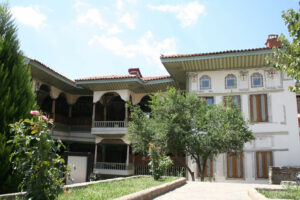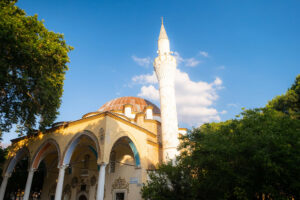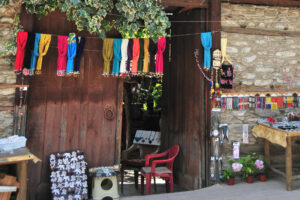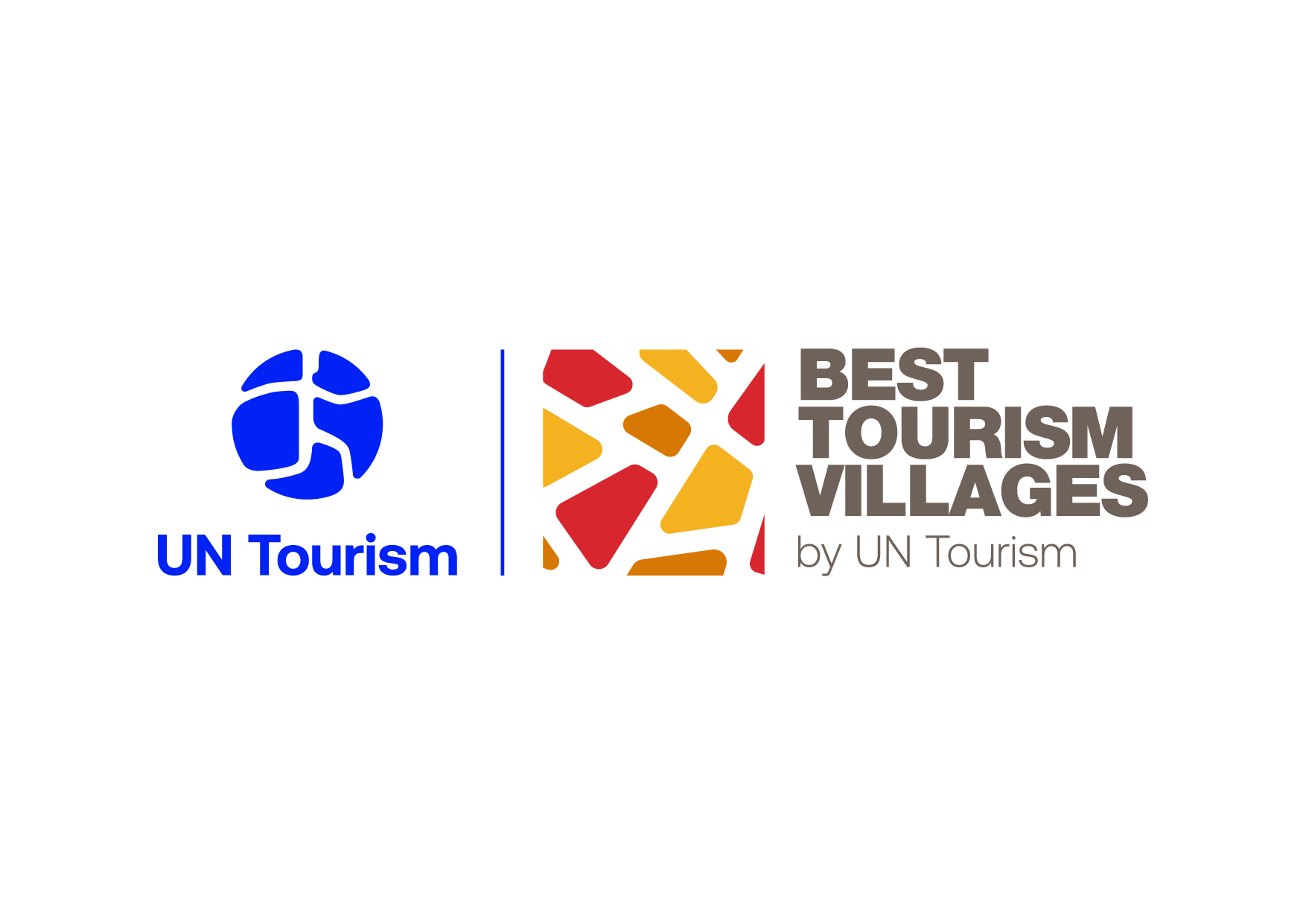TÜRKIYE
TÜRKIYE
TÜRKIYE
A hub for silk production and weaving
The picturesque Aegean village of Birgi is in the Ödemiş district of Izmir, with a history of settlements dating back over 5,000 years from the ancient Lydian Empire up until the Ottoman Civilization. For centuries, Birgi has been one of the largest towns in the region, acting as a trade hub on the historical Silk Road where a variety of agricultural, leather, silk, and woven goods were produced and traded. Birgi has drawn comparisons to an open-air museum and is characterized by the design and architecture of its buildings which showcases traditional Turkish architecture with remarkable monuments and local houses.
In 2012, Birgi was inscribed in the UNESCO World Heritage Tentative List and official negotiations are ongoing to register the village as an official site. Moreover, the significant role that Birgi occupies as a historical center is evident considering it has been added to the “Efeler Trail Project” of İzmir Municipality as part of the cultural route. The village is a distinguishing culture and faith tourism spot, while its geographical location and climate allow the development of alternative tourism types such as winter, plateau, camping and caravan.
Birgi is often considered as the heart of silk production and weaving in Türkiye. Its famous bürümcük fabric is believed to have been in production since the 15th century. Oya “embroidery” is another handiwork among the intangible cultural values of the village. After being listed in the UNESCO World Heritage Tentative List, the village has aimed to develop rural tourism to enable economic growth and entrepreneurship, generate jobs, and empower community while protecting cultural and natural resources.
Birgi aims to develop tourism through a sustainable approach. For this purpose, within the scope of the “Birgi Cultural Road Project” actions included fulfilling tourism signage needs, implementing capacity building and cultural heritage training, coordinating tourism seminars, sharing promotional publications and organizing local cuisine events.
HIGHLIGHTS
-

Major efforts towards heritage preservation
Birgi is among one of the first settlements in Türkiye which has developed an urban preservation plan. In 1996, the village was registered as an official archeological site that is protected by the Ministry of Culture and Tourism (MoCT).
Additionally, in 2012, the Historic center was listed in the tentative List of UNESCO World Heritage. Thanks to the Cultural Heritage Contribution Fund this facilitated the refurbishment of public streets and the restoration of several civil and monumental buildings. It is also important to highlight the work of the Ödemiş Municipality, who organised regular training sessions on traditional stone craftsmanship and silk weaving.
-

The Efeler Trail
The main purpose of Efes’ Way is to promote sustainable and holistic rural development in the locality by protecting and utilizing the natural, cultural and historic wealth, therefore providing socio-economic development in the region.
The trail consists of 28 stages that take approximately 30 days to walk. Efes’ Way connects the villages, highlands and hideouts that represent typical Efe/Zeybek culture which, interestingly, has been compared to the genre of swashbuckling.
-

The vital role of women and youth
In Birgi, women play an active role in tourism and the associated social areas. Ödemiş Women Cooperative established a Handicrafts Store in Birgi and, after the pandemic, they reopened their doors for business. Ödemiş Women Entrepreneurs Board oversees activities which promote entrepreneurship. One such activity involves primary and secondary school students where the aim is to increase their awareness of tourism by working with the Public Education Center to facilitate “Tourism ambassador training courses”.

